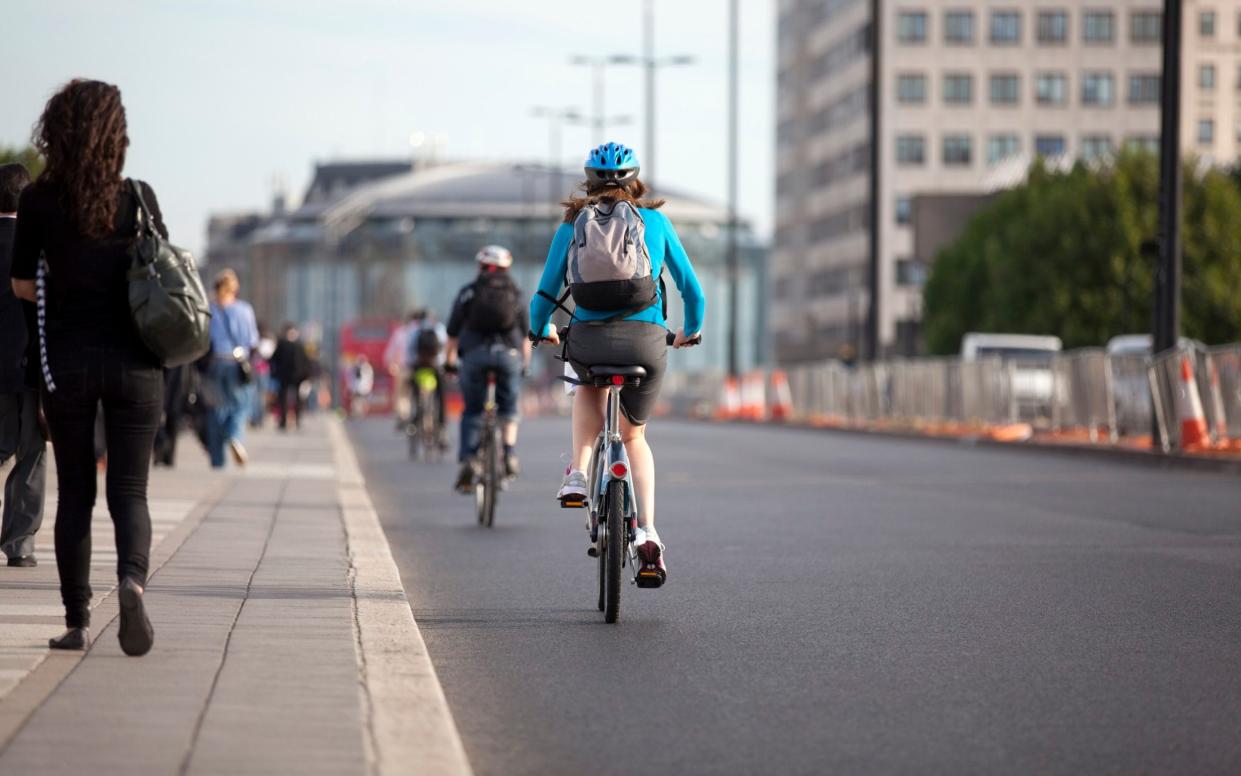Nine in ten British women are scared of cycling in towns and cities, survey suggests

Nine in ten British women are scared of cycling in towns and cities, a survey suggests, with road rage and the fear of a collision among their main concerns.
The survey also revealed that fewer than 25 per cent of women own a bike, while the figure stands at 43 per cent for men.
Despite the Government’s Cycle to Work scheme, where employees benefit from having their bikes paid for from their pre-tax salary, just 5 per cent of women choose to cycle to work. One in five men bike to work, according to the report.
The study, conducted by Censuswide for bike subscription service Swapfiets, surveyed 2,009 UK adults.
‘Active travel’
The findings point towards the challenges facing the government. As part of its net zero efforts, it has produced a cycling and walking investment strategy, aiming for 50 per cent of all journeys in towns and cities to be walked or cycled by 2030. Last year ministers said they had committed £2 billion of funding for “active travel”.
However, the survey suggests that almost 80 per cent of women fear being struck by a vehicle, 62 per cent are put off cycling by road rage or harassment, and 56 per cent said they would feel vulnerable cycling at night.
Other concerns included getting lost (30 per cent), being mugged (6 per cent) and children running into the road (5 per cent).
The report said: “The findings suggest the Government’s pledge to see 50 per cent of all journeys in towns and cities walked or cycled by 2030 could be missed without targeted efforts to overcome women’s cycling anxieties.”
‘Inclusive cycle culture’
Sarah Mitchell, chief executive of Cycling UK, a charitable organisation that supports cyclists and promotes bicycle use, said: “To encourage more women to cycle, we need to continue building well lit, protected cycle lanes to make active travel safe and easy, but we also need to encourage a more inclusive cycle culture in the UK.”
She added: “We need men to take proactive steps to ensure the safety of women cycling in cities.”
Ada Sula, 42, a member of Saffron Social Cycling in Saffron Walden, Essex, said: “I have seen very little to demonstrate this Government spending on cycling or efforts to make the roads safer for cyclists.
“As a cyclist, I sometimes feel drivers are impatient with cyclists and put my life in danger to save a few seconds on their journey.
“If everyone were better educated, and restrained such behaviours, there would be more cyclists on the road and less traffic.”
‘A barrier to cycling’
Transport for London (TfL) said its own research found 54 per cent of women were put off cycling by concerns over harassment and intimidation, rising to 58 per cent for women aged 16 to 34 and 64 per cent for Asian women.
It has announced a £19.5million pledge to “deliver more high-quality cycling schemes” and paid out £575,000 in cycling and walking grants in the capital in 2023-24.
TfL said: “The safety of women and girls, including how safe they feel, is a barrier to cycling.”
It added: “We are reviewing our planning and design processes to better understand how our schemes affect the safety and feeling of safety for women and girls.”
The Department for Transport was contacted for comment.

 Yahoo News
Yahoo News 
